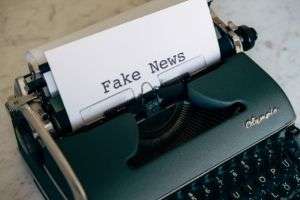Knowledge is not always the truth. Sometimes the knowledge is false and far from the truth.
False knowledge is unreal knowledge. They are usually based on people claiming that they know. Sometimes we are illusory and incomplete knowledge. False knowledge is sometimes dangerous for people’s life and the environment.
We must stay away from false knowledge and search for people who possess actual knowledge. This article explains in detail how false knowledge is. Let’s start
Table of Contents
What does false knowledge mean?
The knowledge is false in one of the following cases:-
- Knowledge is false when not based on real experiences and information but rather on unrealistic guesses.
- Someone may falsely claim knowledge to gain an advantage. Like a job or money.
From the above, knowledge can be deliberately false by claiming a person or company possess knowledge that he does not have.
The knowledge may be involuntarily false due to not following the correct steps to acquire knowledge, which generates false knowledge.
What are the effects of false knowledge?
Using false knowledge leads to unwanted results and may waste your resources and effort without getting any results.
False knowledge is dangerous if it relates to human life, resources, or the surrounding environment. For more information on this topic, you can see the article: When knowledge is dangerous.
Is false knowledge more dangerous than ignorance?
False knowledge is more dangerous than ignorance because ignorance and lack of knowledge make a person want to learn and obtain knowledge, so he is constantly searching for actual knowledge.
But the owner of false knowledge thinks that he knows, as he is not looking for more knowledge, and in many cases, it isn’t easy to convince him that the knowledge he possesses is not true.
How to avoid acquiring false knowledge
To obtain accurate, reliable, and not false knowledge, you must go through several stages; the most important are the following:
- Data collection
- data organization
- Summarizing and analyzing data
- information format
- Knowledge test
- The acquisition of knowledge
For more on this topic, you can read the article: What is the Knowledge Development Process?
How to avoid false knowledge claimants
you can avoid false knowledge by following several tips; here we list some of these tips:
- Gaining knowledge according to the steps specified by the experts. And don’t jump on any of them.
- Attention to education and knowledge training before using it.
- Not to employ anyone before making sure that he obtains reliable knowledge in his field.
- Follow the specified steps to evaluate suppliers and service providers to ensure that they have the correct knowledge.
- Constantly reviewing prior knowledge to ensure it is accurate and in line with changing conditions.
Related Topics
Can knowledge be bad?
Yes, knowledge can be bad if related to bad topics such as magic, witchcraft, theft, and robbery.
Often, skilled thieves have excellent knowledge in determining the goals of their thefts and how to reach them, and this knowledge is terrible because it leads to bad purposes.
Bad knowledge is that which serves bad and illegitimate goals and is in one of the following ways:
- Bad knowledge itself and cannot be used for anything useful in any way.
- There may be a bad use of knowledge. In this case, knowledge is not bad, but people use it for bad purposes.
For more information refer to the purpose of the knowledge article.
Can knowledge be wrong?
Knowledge can be wrong if it is not acquired according to the stages set by experts in the field.
Examples of this type of knowledge abound in the knowledge acquired personally from habits and do not depend on facts.
Conclusion
False knowledge is unreal knowledge. They are usually based on people claiming to know. Sometimes we are illusory and incomplete knowledge.
Knowledge is false when it is not based on real experiences and information, and this type of knowledge is often acquired through the wrong method.
The knowledge may be deliberately false if a person or company claims to possess knowledge that he does not have to obtain any interest like a job or a contract.
Using false knowledge leads to unwanted results and may waste your resources and effort without getting any results.
False knowledge is dangerous if it relates to human life, resources, or the surrounding environment.
Therefore, false knowledge should be avoided, either by following the correct steps to gain knowledge. Or to follow the proper steps in examining and contracting with suppliers and service providers.


